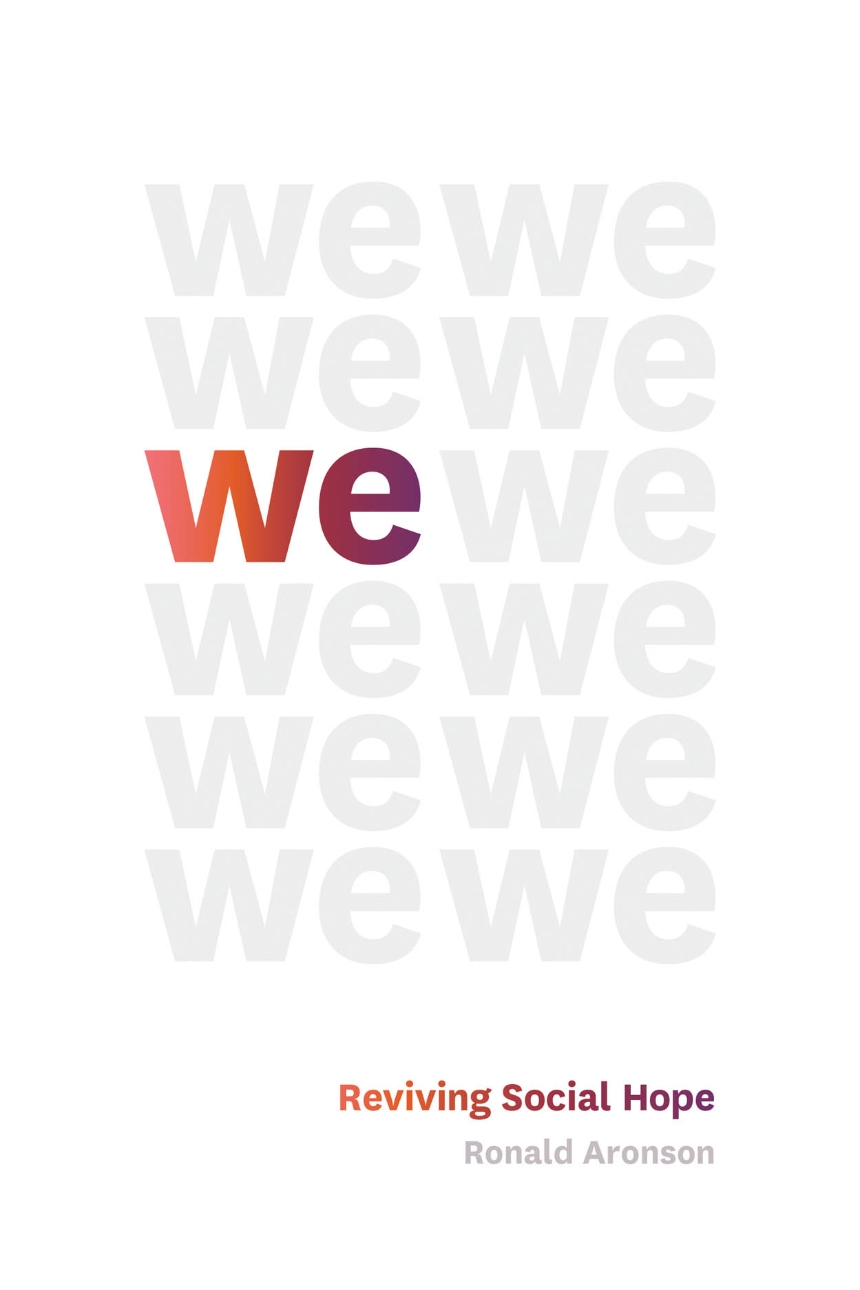We
Reviving Social Hope
The election of Donald Trump has exposed American society’s profound crisis of hope. By 2016 a generation of shrinking employment, rising inequality, the attack on public education, and the shredding of the social safety net, had set the stage for stunning insurgencies at opposite ends of the political spectrum. Against this dire background, Ronald Aronson offers an answer. He argues for a unique conception of social hope, one with the power for understanding and acting upon the present situation. Hope, he argues, is far more than a mood or feeling—it is the very basis of social will and political action. It is this kind of hope that Aronson sees brewing in the supporters of Bernie Sanders, who advocated the tough-minded and inspired disposition to act collectively to make the world more equal, more democratic, more peaceful, and more just. And it was directly contrasted by Trump’s supporters who showed a cynical and nostalgic faith in an authoritarian strongman replete with bigotry and misogyny.
Beneath today’s crisis Aronson examines our heartbreaking story: a century of catastrophic violence and the bewildering ambiguity of progress—all of which have contributed to the evaporation of social hope. As he shows, we are now in a time when hope is increasingly privatized, when—despite all the ways we are connected to each other—we are desperately alone, struggling to weather the maelstrom around us, demoralized by the cynicism that permeates our culture and politics, and burdened with finding personal solutions to social problems.
Yet, Aronson argues, even at a time when false hopes are rife, social hope still persists. Carefully exploring what we mean when we say we “hope” and teasing hope apart from its dangerously misconstrued sibling, “progress,” he locates seeds of real change. He argues that always underlying our experience—even if we completely ignore it—is the fact of our social belonging, and that this can be reactivated into a powerful collective force, an active we. He looks to various political movements, from the massive collective force of environmentalists to the movements around Sanders and Jeremy Corbyn, as powerful examples of socially energized, politically determined, and actionably engaged forms of hope. Even in this age of Donald Trump, the result is an illuminating and inspiring call that anyone can clearly hear: we can still create a better future for everyone, but only if we resist false hopes and act together.
Beneath today’s crisis Aronson examines our heartbreaking story: a century of catastrophic violence and the bewildering ambiguity of progress—all of which have contributed to the evaporation of social hope. As he shows, we are now in a time when hope is increasingly privatized, when—despite all the ways we are connected to each other—we are desperately alone, struggling to weather the maelstrom around us, demoralized by the cynicism that permeates our culture and politics, and burdened with finding personal solutions to social problems.
Yet, Aronson argues, even at a time when false hopes are rife, social hope still persists. Carefully exploring what we mean when we say we “hope” and teasing hope apart from its dangerously misconstrued sibling, “progress,” he locates seeds of real change. He argues that always underlying our experience—even if we completely ignore it—is the fact of our social belonging, and that this can be reactivated into a powerful collective force, an active we. He looks to various political movements, from the massive collective force of environmentalists to the movements around Sanders and Jeremy Corbyn, as powerful examples of socially energized, politically determined, and actionably engaged forms of hope. Even in this age of Donald Trump, the result is an illuminating and inspiring call that anyone can clearly hear: we can still create a better future for everyone, but only if we resist false hopes and act together.
208 pages | 6 x 9 | © 2017
Philosophy: General Philosophy, Philosophy of Society
Political Science: Political Behavior and Public Opinion
